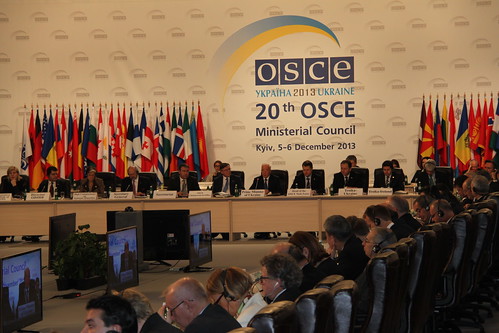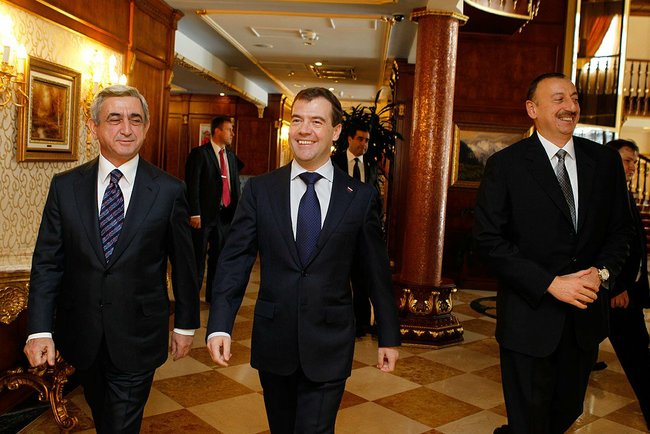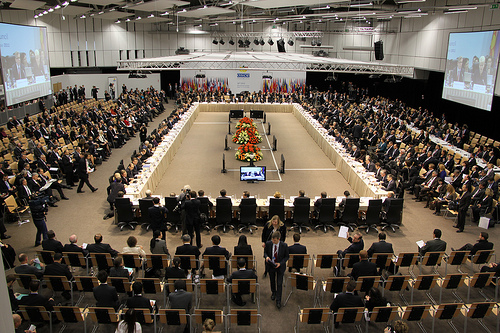
“Today, the OSCE is not the organization over which foreign ministers are racking their brains when they wake up early in the morning.” This was how Irish Foreign Minister Eamon Gilmore characterized the state of the Organization for Security and Cooperation in Europe (OSCE) at the end of Ireland’s presidency in 2012. A year later, however, the OSCE for once finds itself in the headlines. Just a few days before a routine meeting of OSCE foreign ministers in Kyiv, the Ukrainian government – which holds the 2013 OSCE presidency – decided to move the country closer to Russia by breaking off trade negotiations with the European Union. In the run-up to the meeting, police violence against peaceful protesters and the biggest street demonstrations since the 2004 “Orange Revolution” dominated the scene in Kyiv.
US Boycott
In response to Ukraine’s actions, only half of the 57 OSCE members sent their top personnel to Kyiv. US Secretary of State John Kerry deliberately boycotted the event, and Britain and France sent deputies in lieu of their foreign ministers. Catherine Ashton, the EU High Representative for Foreign Affairs, decided to meet with Serbian and Kosovar leaders in Brussels instead. By not attending this year’s ministerial meeting, Kerry and others did the OSCE a disservice. For 40 years the organization has been a powerful symbol of dialogue and the search for consensus and compromise between East and West. Boycotts and deliberate snubs may be useful for alliance-building and zero-sum games, but they are not in keeping with the “spirit of Helsinki” or the principles of cooperative security.


